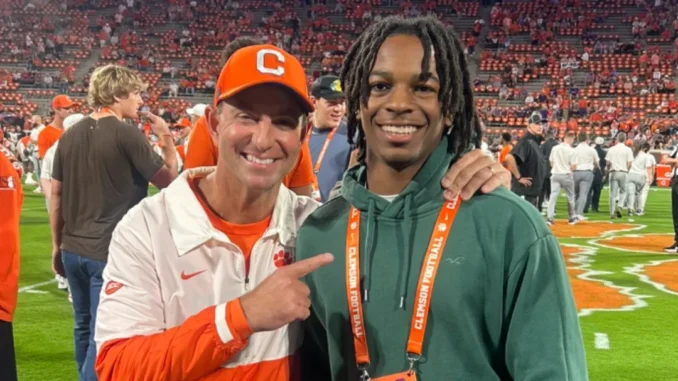
Securing top talent is paramount for programs aiming to excel. Recently, Florida State University (FSU) made headlines by extending an offer to a highly regarded recruit committed to Clemson University. This strategic move underscores the dynamic and often fluid nature of college football commitments, where verbal pledges can shift under various influences.
The Recruit in Focus
The athlete at the center of this development is Ayden Pouncey, a four-star cornerback from Winter Park, Florida. Pouncey has been on the radar of several top-tier programs due to his exceptional skills and on-field performance. His commitment to Clemson was a significant win for the Tigers, bolstering their defensive prospects for upcoming seasons.
Florida State’s Strategic Offer
FSU’s decision to extend an offer to Pouncey, despite his verbal commitment to Clemson, highlights the Seminoles’ determination to enhance their defensive lineup. This approach is not uncommon in collegiate recruiting, as programs often continue to pursue committed players to address specific team needs or to capitalize on potential changes in a recruit’s decision-making process.

The Dynamics of Verbal Commitments
In college football, a verbal commitment is a non-binding declaration of intent. Recruits may choose to explore other opportunities, and programs may continue to recruit athletes committed elsewhere. This fluidity allows both players and institutions to reassess their options up until the National Signing Day, when commitments become official.
Implications for Clemson
For Clemson, FSU’s offer to Pouncey serves as a reminder of the competitive nature of recruiting. The Tigers may need to reaffirm their commitment to Pouncey, ensuring he feels valued and integral to their future plans. This situation also emphasizes the importance of maintaining strong relationships with recruits to secure their commitments.
Broader Recruiting Trends
This scenario reflects a broader trend in college football recruiting, where programs are increasingly aggressive in pursuing top talent, even from rival schools. The stakes are high, and securing elite athletes can significantly impact a team’s performance and prospects. As such, recruiting battles often extend beyond initial commitments, with programs striving to sway decisions in their favor.
Conclusion
Florida State’s offer to Clemson commit Ayden Pouncey exemplifies the dynamic and competitive nature of college football recruiting. As National Signing Day approaches, it will be interesting to observe how this situation unfolds and what it signifies for both programs involved. Ultimately, such developments highlight the strategic maneuvers institutions employ to build formidable teams and the ever-evolving decisions that recruits face in their athletic careers.
Leave a Reply